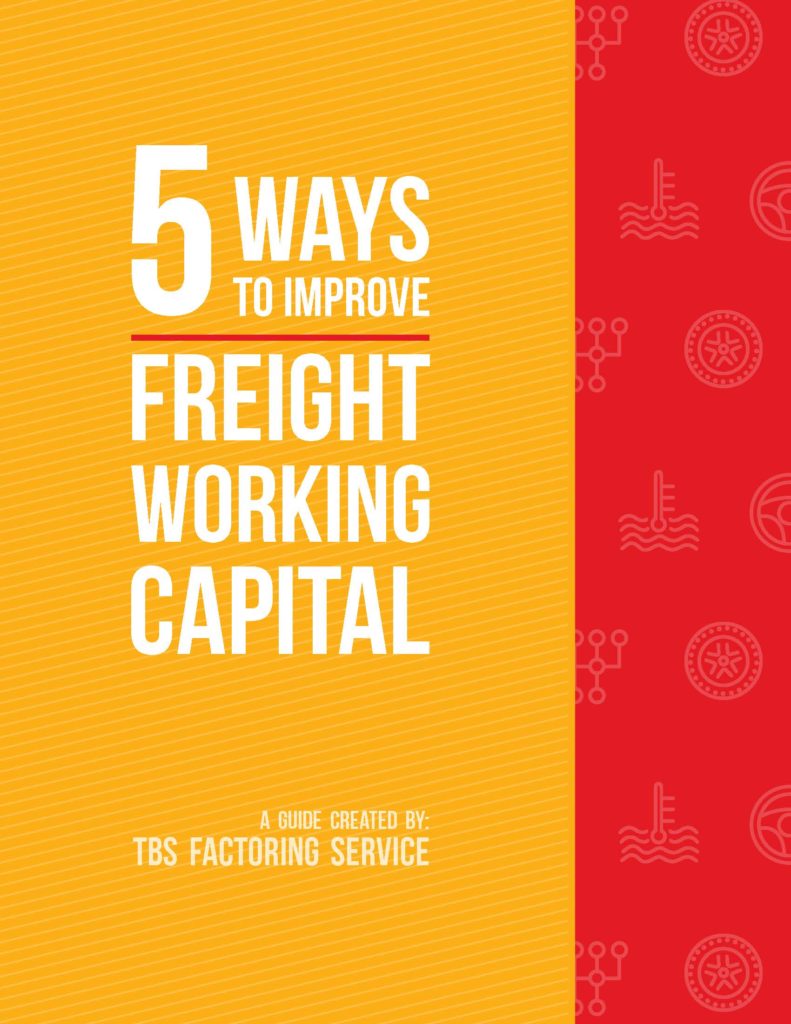Trucking can be a rewarding career, due to the lure of the open road and the ability to be your own boss. But as with any business, you have to make money—and manage it wisely—to reap the rewards.
Plenty of freight is available at competitive rates, but fixed costs (such as tractor and trailer payments, insurance, fuel taxes and permits), plus variable costs (such as fuel, meals, lodging, telephone, tolls, gate fees, tires, taxes, loading/unloading lumper fees, laundry, showers and maintenance), keep coming. Cash is king of the road, so here are five ways to improve your working capital.
Chapter 1: String together shorter hauls that pay better
While hauling a load of beer from Texarkana to Georgia looked like great fun (and quite lucrative) in the 1977 movie “Smokey and the Bandit,” today’s successful trucker checks load boards online or works with a dispatch service to find shorter hauls to string together for a higher per-mile average rate.
Load boards provide information about short and back hauls, and many have features that allow you to set parameters and get alerts when a posted load meets your criteria.
Once you find a series of short loads—coming and going—try to negotiate being the regular, go-to driver for that route. Doing this can provide stability to your schedule and predictability to your cash flow.
Chapter 2: Fuel up thoughtfully
If you pay for fuel with a credit card, you may be paying a premium price. We offer fuel cards with volume discounts at the pump, and advance you cash on the card. We can advance up to 50 percent toward the purchase of fuel on any load we factor (subject to approval).
Here’s how it works: drivers need to sign a fuel advance program agreement and send an advance request to TBS with a copy of the rate sheet and bill of lading. Upon approval, TBS will put the advance on either your TBS EFS or TBS Comdata® fuel card.
TBS’s upgraded fuel advance program has been streamlined for faster processing and funding.
Through EFS and Comdata, you can manage features of your fuel card online, such as setting spending limits on the cards for multiple drivers.
Also pay attention to where you fuel up. When it comes time to pay your IFTA fuel taxes quarterly, some states assess more than others. Rates often change, so check iftach.org for information.
Chapter 3: Enhance cash flow with freight factoring
Factoring allows you to turn your freight bills into cash for a nominal fee, rather than waiting 30 to 60 days to collect. Factors can purchase the invoice only (non-recourse factoring) or purchase both the invoice and the payment risk (recourse factoring) for a slightly higher fee.
Since credit cards often give you 30 days to pay, some truckers turn to them for financing. They quickly find out, however, that they may not qualify for a high-enough limit, and the high interest rates of many credit cards can quickly lead to trouble if large purchases or cash advances can’t be repaid quickly.
Bank loans or lines of credit are viable options for financing your trucking business, but once again, new start-ups may find this type of financing hard to find. The Small Business Administration (SBA) recommends changing personally-secured lines of credit to business lines of credit as soon as possible.
Unpredictable cash flow can derail the strongest of companies—and independent truckers are especially susceptible—if you don’t plan your work and work your plan.
Chapter 4: Keep your rig rolling with preventative maintenance
If your truck is held together with spit and baling wire, incessant repairs will deplete your wallet quickly. But maintenance performed regularly, while the equipment is still working, will lessen the likelihood of it failing and prevent unexpected breakdowns. The following components should be inspected and kept in excellent condition, and you should always buy good quality fuel.
Chapter 5: Stay in compliance
In order to keep our roadways safe, your on-road safety performance is measured using data from roadside inspections against the BASIC (Behavior Analysis and Safety Improvement Categories). These are:
Unsafe Driving
Hours of Service (fatigued driving) Driver Fitness (CDL and medical) Controlled Substances (drugs/alcohol)
Vehicle Maintenance (cargo handling, HAZMAT, and crashes)
Your measurement for each BASIC depends on your number of violations and their severity, as well as how recent the violations were.
Always request a CVSA sticker on a “No Violations” – Level 1 inspection. If the inspector is certified, they can provide a sticker that is valid for the current quarter. Be sure your truck, trailer, and logs are in good condition because “OOS” (out of service) can mean “out of business.”
There is tremendous focus on distracted driving as a contributor to truck crashes, and commercial drivers are required to use hands-free cell phone technology. The device you utilize must allow drivers to make or answer calls with a single touch. Any accidents, regardless of cause, can potentially result in a DOT intervention and could subsequently put a driver out of business. No call, text, or tweet is worth losing your livelihood.
Repeat on-the-road violations can result in an FMCSA intervention in the form of an on-site DOT audit, letter of intent to revoke a motor carrier’s operating authority, and much more. Call the experts regarding any letter you receive from the FMCSA. Ignoring a letter from the FMCSA is costly in many ways.
Parking is also a nationwide concern. Be sure to check the route ahead for adequate parking opportunities to avoid going over hours, ensure adequate rest, and prevent unnecessary stress and driver fatigue.
To enjoy your trucking career and the time you spend on the road, it is necessary to have the working capital available to take care of fixed and variable expenses, both in the long and short terms. By staying in compliance, keeping your rig maintained, factoring your freight loads, fueling in the right places with the right discounts, and stringing together shorter hauls that pay better, you’ll find that during those hours spent resting up to prevent driver fatigue, you’ll sleep like a baby knowing you’ve got all your bases covered.

